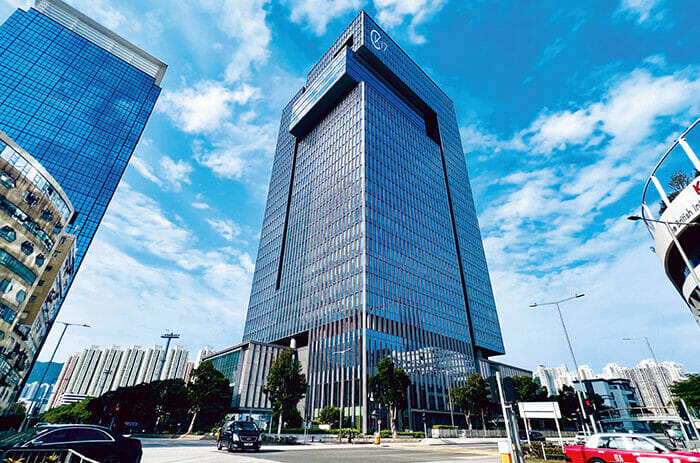
The Goldin Financial Global Centre traded for $830M in Q1’s biggest single-asset deal (Image: Savills)
Commercial property investment in Asia Pacific during the first quarter of 2023 slumped to the lowest level in more than a decade, extending a downturn seen in last year’s second half, as rising interest rates and unsettled pricing slowed dealmaking, according to MSCI Real Assets.
Trading volume of income-producing assets in the region during the January-to-March period fell by 50 percent from a year earlier to $27.2 billion, the data provider said in its Capital Trends report released Thursday.
Offices remained the largest asset class for investment despite activity in the sector also halving to reach $10.6 billion. The quarter’s biggest single-asset transaction in the office segment (and overall) came when PAG and Mapletree Investments teamed up to buy the Goldin Financial Global Centre in Hong Kong for $830 million after it had been seized by receivers.
“The office sector is perhaps the most closely watched of the major asset classes at the moment, as capital values in Asia Pacific continue to hold up for the moment even as those in the US and Europe have slid considerably,” said David Green-Morgan, global head of real assets research at MSCI. “There remains more appetite for this asset class in the APAC region but even that may not be enough to prevent some degree of price corrections later this year.”
City-State Still a Draw
Retail posted the shallowest decline across core sectors during the first three months of 2023, with deal volume falling 26 percent year-on-year to $7.3 billion. The quarter’s top single-asset retail deal (and second largest overall) was Mercatus Co-operative’s sale of a half-stake in the NEX shopping centre to a joint venture of Frasers Property and Frasers Centrepoint Trust for $790.5 million.

David Green-Morgan, head of real assets research at MSCI
The mall transaction helped Singapore post its strongest ever start to a year in 2023, with sales volume jumping 40 percent year-on-year to $3.7 billion.
“The number of deals fell by less than 10 percent from last year — only China fared better across all the major markets globally — illustrating the depth of private and corporate appetite for real estate in the city-state,” said Benjamin Chow, head of Asia real assets research at MSCI.
South Korea, by contrast, turned in the region’s weakest first-quarter performance with deal volume diving 78 percent to $2.7 billion. Even so, MSCI noted that the central bank’s stabilisation of the cash rate in February appeared to breathe some life back into the market.
“In fact, the worst could already be behind us — office volumes in April alone had already far exceeded office investment for the whole of the first quarter,” Chow said.
Japan’s Cross-Border Appeal
The first quarter saw Japan’s deal activity tumble 43 percent year-on-year to $6.7 billion, but the country was the only major APAC market where the pipeline of deals in contract grew rather than shrank, according to MSCI.
More than 60 percent of global cross-border deal activity was allocated to Japan, led by BentallGreenOak’s acquisition of the Rihga Royal Hotel in Osaka for $403 million — the quarter’s sixth-largest single-asset transaction in APAC. Deals signed towards the end of the quarter included Mapletree Logistics Trust’s acquisition of a Japan-heavy APAC logistics portfolio from CBRE IM for $687 million, as well as KKR and Gaw’s purchase of the Hyatt Regency Tokyo for an undisclosed amount.
In China, deal volume fell 33 percent year-on-year to a region-leading $7.7 billion. Shanghai’s 70 percent drop in deal activity weighed on the total as Beijing, Shenzhen, Wuhan, Hangzhou, Nanjing, Tianjin and Chengdu all posted growth.
“China’s decline in investment activity was all about one city — Shanghai,” Green-Morgan said. “Excluding the nation’s biggest market, deal volumes would have grown by double digits relative to last year.”
Hong Kong’s investment volume rose 15 percent year-on-year to $2.6 billion, boosted by the Goldin megadeal and China Tourism Group’s purchase of the Kimberley Hotel from China Cinda for $433 million.
Leave a Reply